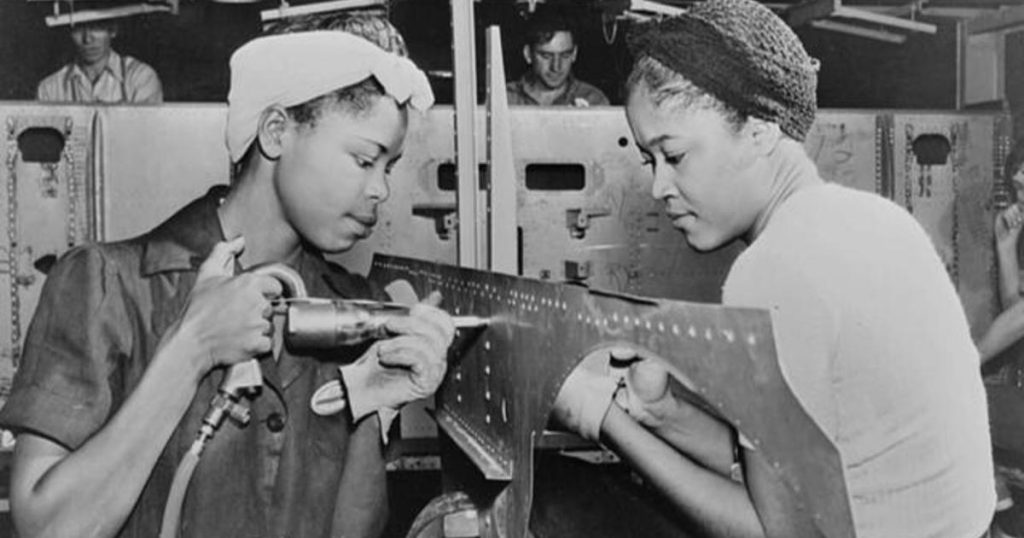This week, a Congressional Gold Medal will be given to the women who worked in factories during World War II and inspired “Rosie the Riveter.” These women, now in their 80s and 90s, were part of the millions who served during the war. Susan King, a 99-year-old woman who worked in a Baltimore aircraft factory, is one of the few survivors being honored. She, like many others, took on these jobs so they wouldn’t have to be maids.
Following the war, Rosie the Riveters were largely ignored compared to the recognition received by the male veterans. Gregory Cooke, a historian and son of a Rosie, believes this lack of appreciation is due to the fact that they were women. Many Rosies, including Cooke’s mother, passed away without realizing the historic significance of their contributions. King, the only Black woman Cooke met who understood her role as a Rosie, has spent her life educating others about her experiences and significance.
The collective memory of the Rosies is being preserved at various locations, such as the Glenn L. Martin Aviation Museum in Maryland and the Rosie the Riveter National Historic Park in California. The war effort was often a family affair, with women like Marian Sousa and her sisters all contributing to the cause. Phyllis Gould, one of the voices pushing for recognition of the Rosies, passed away in 2021 but played a significant role in designing the Congressional Gold Medal that will be awarded to the honored Riveters this week.
About 30 Rosie the Riveters will be honored with the Congressional Gold Medal this week. King, among them, reflects on the importance of this recognition at her age, as a Black woman whose contributions are finally being acknowledged. Her journey and the stories of other Rosies are a testament to the resilience and strength of these women who played a vital role in America’s history. Although many have passed on without seeing their efforts fully recognized, their legacy lives on through the efforts of those like King, who have dedicated their lives to preserving their memory.
The documentary “Invisible Warriors,” produced and directed by Gregory Cooke, sheds light on the forgotten stories of the Rosies and the challenges they faced post-war. These women, once overlooked and dismissed, are finally receiving the recognition they deserve for their role in shaping America during World War II. As the last living Rosies are honored this week with the Congressional Gold Medal, their contributions will be forever memorialized in the history books and in the hearts of those who appreciate their sacrifices and hard work.


